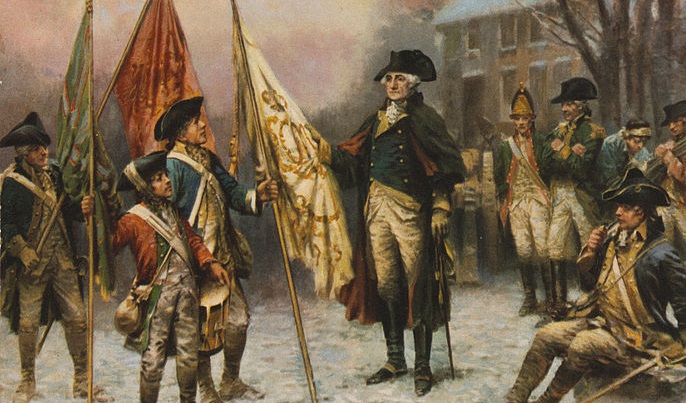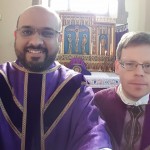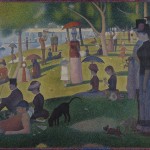
The issue of Muslim identity in America is front and center of late after the Paris attacks, the political debates that have followed, the comparisons between Catholic and Muslim persecution in the States, and the recent suspension of a professor at Wheaton who argued that Christians worship the same God as Muslims. What follows is a guest post from a young Muslim scholar on the topic of assimilating Muslims to American culture.
Criticizing America is easy. Let’s face it: there is plenty to criticize. When I first came to the United States in 1996, I was a bit disappointed. I could not see that unique American ambition and passion that I thought existed. People seemed dejected and lazy. OK, so, maybe I saw too many 80’s movies when I was a kid and I was naive in my expectations! Despite the naivete, which I am sure every immigrant has felt to a certain extent, I still have to say that my immediate experience felt hollow.
The first few years were brutal. We were poor, barely making it. To buy a t-shirt at the Gap was equivalent to buying a Chanel or Yves Saint Laurent! (Just for clarification purposes: now I can afford the Gap t-shirt, but alas, I’m still far from haute couture. I was seventeen and enrolled in public high school, 11th grade. Students being students when faced with otherness would say silly and mean words to me, convinced I could not understand them. But I already spoke English so they stopped quickly. Some people thought that I needed an “explanation” on how to flush a toilet, which was an interesting experience. Beginnings are always tough and alienation was inevitable. So, I turned to what I know best: studying.
There is so much more to my story, but I begin this short essay with a brief bio because I want to say a few words about cultural assimilation. America was a “culture shock” – but then again, any new environment is. And yet, it is easy to adapt to the new ways of daily life. One simply has to assimilate in order to survive. It seems completely obvious to say this but I did not expect to see Bosnia in America. At first, I considered myself a guest. Then, I was a Green Card holder. And after that, I became a naturalized citizen. I observed and evaluated immediately what I had to do to adapt in order to succeed. I think that most Bosnian immigrants have done the same.
How much should an immigrant assimilate? What does that even mean? Preserving one’s cultural heritage in the United States is not difficult. We see this everywhere: from cultural organizations to restaurants. The point is that one has the freedom to honor one’s past because it cannot be erased. It should not be erased. Part of my soul is still in Bosnia and it will always be there – this is a fact for every immigrant as they relate to their country of origin.
Another important point is that everyone has the freedom to worship God in their particular tradition, as well as to not believe in God. And at the same time, thank goodness that we do not live in a theocracy.
An assimilation is a strange word. It has a connotation of disappearance, of complete change, of getting rid of anything, which reminds one of where they came from, and some choose to do exactly that. But one does not have to disappear. At the same time, one can become and remain an American.
The way I view “assimilation” is the understanding of and belief in the US Constitution, and it is the only necessary assimilation. This was not hard for me because I already believed in those principles of humanism. Any other “assimilation” had to do with practical matters, and those, I assure you, did not threaten my existence or were catalysts for an extinction of my Bosnian soul.
In a letter to James Madison dated January 30th, 1787, Thomas Jefferson wrote: “I hold it that a little rebellion now and then is a good thing, and as necessary in the political world as storms in the physical.” The American experiment is certainly not free of its paradoxes and weaknesses. However, when a citizen begins to pervert the Constitution, we are surely looking at the dismantling and a destruction of the American essence. The country will cease to be what it was meant to be: a refuge for those who need protection and freedom to be. Such notions have to be protected (while being mindful of the dignity of human life) and I deem that to be a duty of every American citizen.
Emina Melonic is originally from Bosnia, a survivor of the Bosnian war and its aftermath of refugee camps. She immigrated to the United States in 1996. She holds BA in English, German, and Art History, Master’s degrees in the Humanities, Theology, and Philosophy, and is currently a PhD candidate in Comparative Literature at SUNY Buffalo. Emina and her husband, Charlie, live near Buffalo, NY with their nutty and lovable cat, Lulu. She blogs about culture, art, and politics at Illumination and about film at The Magic Lantern.
This was a guest post.
You should also see what Roman Christian group says it worships the same God as Muslims.
Finally, do you know how thorough the refugee vetting process is?
















